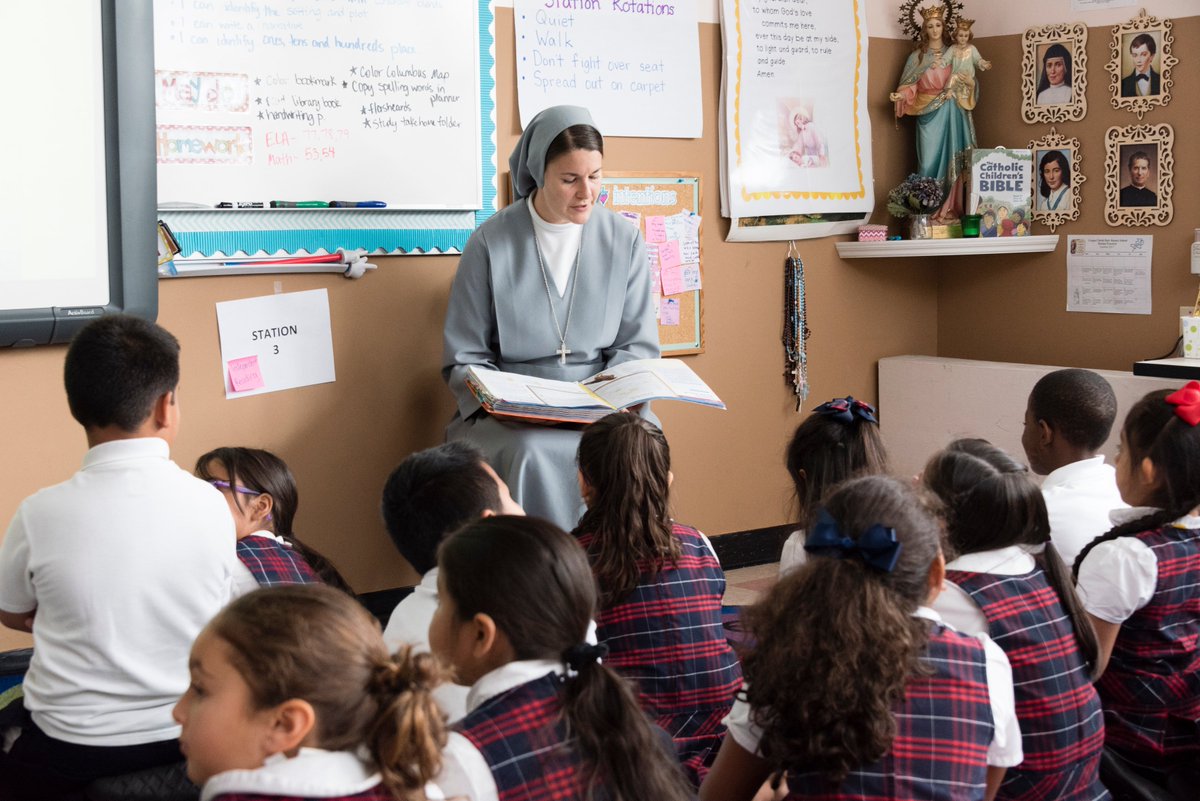Predicting a Catholic school teacher’s salary in California can be very challenging.
There are a surprising number of factors that determine your compensation or salary.
These factors should be considered to maximize your earnings potential.
In this article, we are going to enlighten you on the necessary details about;
- What Does a Catholic School Teacher Do in California
- Responsibilities/Duties Of A Catholic School Teacher in California
- Necessary Skills Required of a Catholic school teacher in California.
- How Much Do Catholic Church Teachers Make in California?
What Does A Catholic School Teacher Do?
Just like every other teacher in either a private school or a public school irrespective of which denomination owns it still does the same things such as;
Teachers develop curriculum and lesson plans, and present those lessons to their students, individually or in groups.
They track the progress of their students and create reports to inform parents about their progress.
Teachers are responsible for maintaining a safe and respectful classroom environment in order to optimize student capabilities and develop their love of learning.
Teachers are required to have a Bachelor’s degree and a teaching credential.
In order to obtain a teaching credential, a minimum number of hours in education coursework must be completed and an exam must be passed.
Requirements may vary by state and type of school.
Many teachers choose to advance their career by entering into administrative positions, like principal or superintendent.
Responsibilities Of Catholic School Teacher
- Develop curriculum to meet developmental goals and instructional activities
- Prepare lesson materials, grade papers, manage the classroom, and evaluate and give feedback to students
- Exercise open and respectful communication with families, co-workers, supervisors, and other school staff
- Measure progress and accomplishments of students towards their academic achievements on a regular basis and provide progress reports as required
- Create and keep records on attendance, accidents, incidents, and other noteworthy events in accordance with licensing guidelines and program policies
- Attend conferences and workshops in order to further advance professional development
- Manage student behavior in accordance with outlined guidelines
- Provide a safe, thriving, and respectful environment for all students in the classroom and on the school campus
Necessary Skills Required as Catholic School Teacher In California
Apart from the basic universal responsibilities of a teacher. There are also necessary skills required of a person who is taking up a vacancy as not just any kind of teacher but as a Catholic School Teacher in a school owned by a Catholic Church.
Below are some of the necessary skills:
- Full knowledge of the teachings of the Catholic Church
- Supports and upholds the philosophy of Catholic education and the mission of the school
- Acts as a witness to Gospel values by modeling the teachings of the Catholic Church
- Supports and adheres to the Code of Conduct and policies and procedures of the school and Diocese
- working knowledge and a strong commitment to the mission of fostering lay leadership in
the Catholic Church.
- Knowledge of subjects taught, instructional methods/strategies, and curriculum differentiation
- Knowledge of child development, learning, and behavior
- Able to manage student behavior in classroom setting
- Able to communicate effectively in both written and verbal form
- Able to work well with others in the school community
- Skill in handling multiple tasks simultaneously
- Skill in pacing and differentiating instruction
- Skill in motivating and engaging students in the learning process
- Skill in organizing and relating information in an understandable format
- Skill in job appropriate technology
- Skill in critical thinking and planning
Catholic School Teacher Qualifications In California
In order to be qualified to be a Catholic school teacher in California or gain employment in general in a reputable school.
There is a need to attain all these qualifications listed below such as;
- Bachelor’s degree from an accredited university
- Teaching credential/certificate/license for corresponding age/grade level
- 2 years of teaching experience
- Highly developed oral and written communication skills
- Ability to build relationships effectively and professionally with families and students
- Experience developing and implementing curriculum
- Physical ability to handle frequent sitting, stooping, bending, pushing, pulling, and moving throughout the room
- Proven ability to maintain a safe and studious classroom environment
- Demonstrated ability to develop and implement age-appropriate curriculum
By knowing this, let’s look into “how much do Catholic school teachers make in California”.
How Much Do Catholic School Teachers Make In California
California has been identified as one of the states with the highest employment level and also the highest-paying state for teachers whether private or public.
The salary range depends on various factors.
In Catholic schools in California, teachers are being paid an average of $34,934 per year or about $17 per hour.
This is very low compared to the national average salary of teachers in elementary and secondary education, let alone in California.
Conclusion
A Catholic School Teacher fulfills the mission of the Catholic school by planning, guiding, and evaluating the learning process of the students in the Catholic school for whom the teacher is responsible within the framework of the school’s philosophy, organization, and curriculum.
With this above information, we can conclude that Catholic School Teachers earn less than every other teacher in California even with all the population in each of the schools since parents will prefer to enroll their kids into a Catholic school inorder to draw them more closer to the Catholic doctrine than in any other school.
So what’s your take?
Let’s hear your comments and arguments in the comment section.
Don’t forget to like, follow and subscribe.
